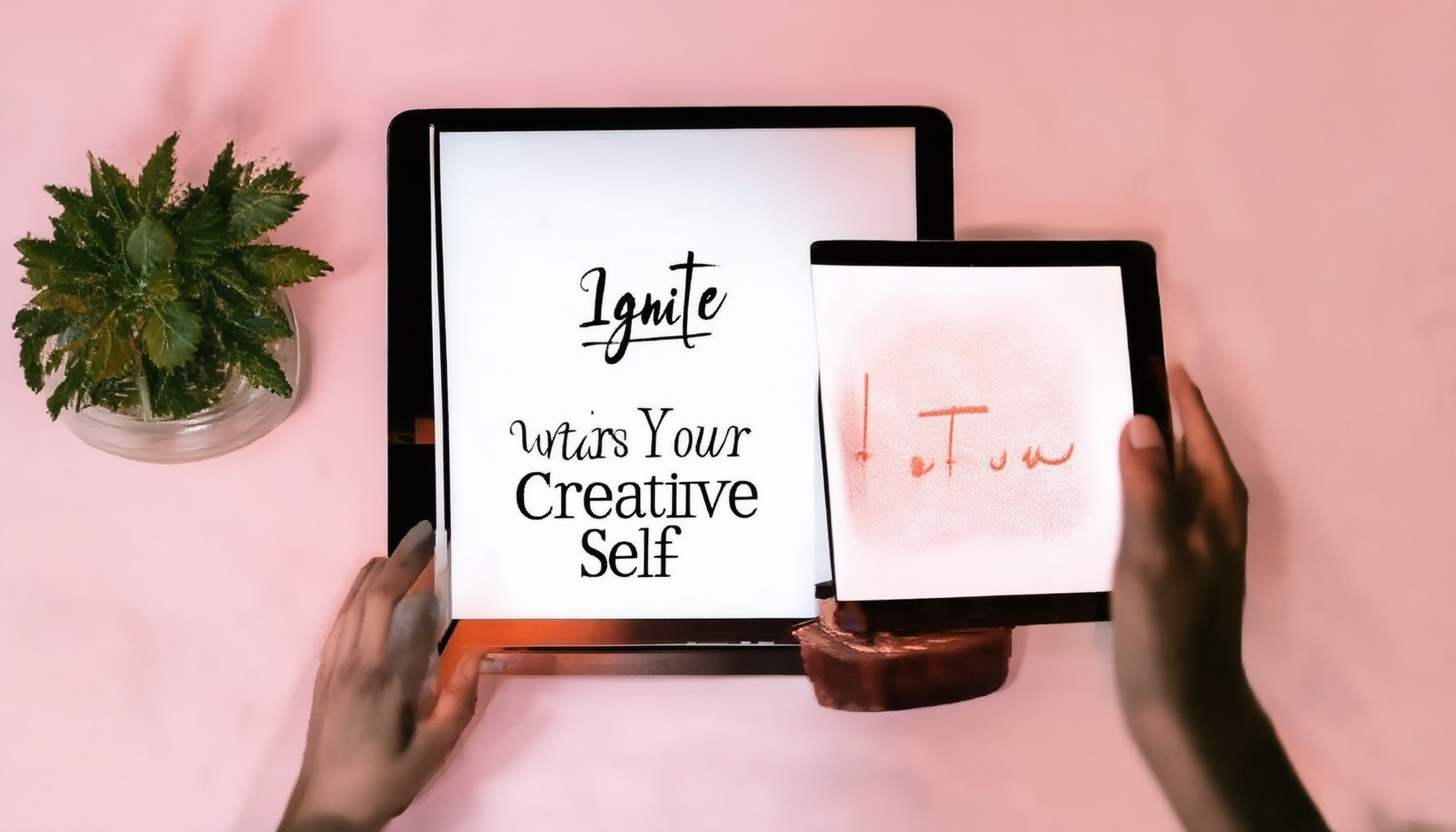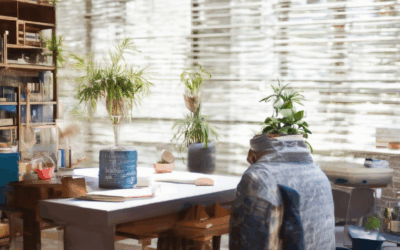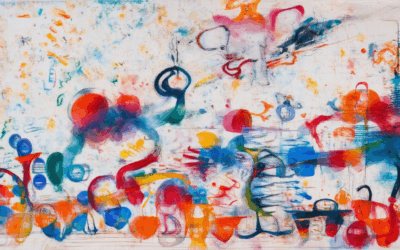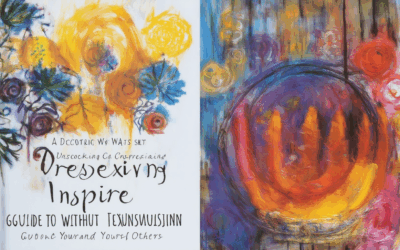Are you ready to unlock your creative potential and embark on a journey toward personal growth? Imagine harnessing the power of self-reflective creativity to transform your thoughts, ideas, and actions. In today’s fast-paced world, cultivating a creative mindset isn’t just about generating innovative ideas—it’s about understanding yourself better and leveraging that insight to achieve your goals. Self-reflective creativity, often overlooked in favor of quick fixes, is a transformative practice that fosters empathy, enhances problem-solving skills, and deepens your connection with your true self. By exploring the nuances of your creative self, you can unlock hidden strengths, embrace vulnerability, and foster meaningful connections with others. Whether you’re an artist, entrepreneur, or anyone seeking personal growth, this article offers actionable strategies to boost your self-reflective creativity, helping you create a life that inspireS and prospers.
Here are the key takeaways from the article “Ignite Your Creative Self: Boosting Self-Reflective Creativity for Personal Growth”:
- Journaling: Document your thoughts and inspirations to uncover patterns and deepen introspection.
- Past Project Analysis: Use SWOT analysis to review strengths, weaknesses, opportunities, and threats in your creative process.
- Mindfulness Practice: Engage in mindfulness to enhance focus and stay present during creative endeavors.
- Learn from Others: Study successful creators and adapt their methods to inspire your unique style.
- Set SMART Goals: Define Specific, Measurable, Achievable, Relevant, Time-bound goals to guide your creativity.
- Collaborate: Partner with others to gain diverse perspectives and foster innovative ideas.
- Explore New Environments: Visit stimulating locations to expose yourself to fresh stimuli and expand creativity.
- Practice Gratitude: Reflect on positive experiences to enhance well-being and foster a growth mindset.
- Stay Curious and Open-Minded: Approach creativity with curiosity to explore unconventional ideas.
- Be Consistent: Develop a regular creativity routine to strengthen your creative muscles.
- Leverage Technology: Use digital tools to enhance efficiency and productivity in your creative process.
- Enhanced Creativity and Innovation: Gain deeper insight for more original ideas and innovative solutions.
- Improved Critical Thinking: Develop analytical skills for better judgment and decision-making.
- Effective Problem-Solving: Apply past experiences to tackle future challenges with confidence.
- Personal Growth and Self-Discovery: Understand your strengths and values for authentic living.
- Reduced Stress and Well-being: Experience therapeutic benefits through creative practices.
- Build Resilience and Adaptability: Learn from setbacks to overcome future challenges.
- Foster Self-Awareness: Deepen understanding of yourself for personal evolution.
- Continuous Learning and Adaptation: Stay flexible in a changing world through reflection.
- Contribute to Purpose and Meaning: Align actions with your true self for a fulfilling life.
These points encapsulate the strategies and benefits of self-reflective creativity, offering actionable insights and tangible value for readers.

How Can You Enhance Your Self-Reflective Creativity?
Elevate Your Self-Reflective Creativity: Proven Strategies for Innovation
Discover how to elevate your self-reflective creativity with proven strategies that unlock innovation and inspire growth. Explore reflection, curiosity, and exploration to harness your creative potential.
1. Practice Active Reflection
Self-reflection is the cornerstone of creativity. Take time daily to reflect on your experiences, challenges, and successes. Journaling, meditation, or simply sitting in silence can help you connect with your inner thoughts and ideas.
- Ask yourself questions like, “What did I learn from this situation?”
- Identify patterns in your behavior and outcomes
- Consider how past experiences shape your current perspective
2. Cultivate Curiosity
Curiosity is the fuel for creativity. Approach life with wonder and ask questions. This mindset allows you to explore new possibilities and uncover hidden opportunities for innovation.
- Explore new environments and interact with diverse people
- Read widely and engage with different perspectives
- Stay curious about the “how” and “why” behind things
3. Embrace Exploration
Exploration is the act of stepping beyond your comfort zone. It’s where you’ll find fresh inspiration and breakthrough ideas. Push yourself to try new things and experiment regularly.
- Experiment with new tools, techniques, and approaches
- Take intellectual risks and challenge your assumptions
- Be open to learning from failures and setbacks
4. Foster a Growth Mindset
A growth mindset is essential for sustained creativity. Believe that your abilities can develop with effort and persistence. This mindset encourages you to embrace challenges and view them as opportunities for growth.
- View criticism and feedback as constructive
- Learn from others’ success stories
- Stay adaptable in the face of change
5. Seek Diverse Perspectives
Creativity thrives in diversity. Surround yourself with people who challenge your thinking and offer unique viewpoints. This exposure can spark new ideas and inspire innovative solutions.
- Engage with colleagues, friends, and online communities
- Attend workshops, conferences, and events
- Seek out mentors and collaborators
6. Reflect on Failure and Success
Learning from failure and success is a powerful way to enhance creativity. Analyze what went wrong in failed attempts and what worked in successful ones. This introspection can reveal valuable insights.
- Review past projects and identify lessons learned
- Analyze the journey leading to achievements
- Document your thought process during challenges
7. Practice Mindfulness
Mindfulness helps you stay present and focused, which is crucial for creativity. By clearing mental clutter, you can better access your creative resources.
- Practice mindfulness exercises like meditation
- Focus on the present moment during creative tasks
- Manage stress and anxiety effectively
8. Set Creative Goals
Having clear creative goals gives you direction and motivation. Define what you aim to achieve and track your progress. This sense of purpose can boost your creativity.
- Define short-term and long-term creative objectives
- Break goals into manageable steps
- Regularly review and adjust your progress
9. Engage in Collaborative Problem-Solving
Collaboration can spark new ideas and perspectives. Work with others to tackle challenges and explore creative solutions.
- Participate in team brainstorming sessions
- Seek collaborative partners for projects
- Learn from group discussions and debates
10. Stay Open to Inspiration
Inspiration can come from unexpected places. Keep your eyes and mind open to the world around you. Pay attention to details and patterns that might trigger creative ideas.
- Notice everyday objects and situations
- Study nature and observe its patterns
- Engage with art, music, and other creative forms
11. Reflect on Your Values and Beliefs
Your core values and beliefs shape your creativity. Understanding them can help you align your creative efforts with your authentic self.
- Clarify your personal values and principles
- Reflect on how they influence your work
- Align your creativity with your deeper purpose
12. Practice Gratitude
Gratitude fosters a positive mindset, which is essential for creativity. Taking time to appreciate the good in your life can boost your energy and inspiration.
- Journal about things you’re grateful for
- Express appreciation in meaningful ways
- Connect gratitude with your creative aspirations
13. Embrace Experimentation
Experimentation is key to discovering new creative approaches. Don’t fear failure; see it as a step toward success.
- Try new techniques and approaches
- Experiment with different media and tools
- Be willing to iterate and refine your ideas
14. Seek Feedback
Feedback provides valuable insights and helps you grow. Share your work with trusted peers and mentors to gain perspective and improve your creativity.
- Share your ideas with colleagues and friends
- Get constructive feedback on your work
- Use feedback to refine and enhance your creativity
15. Build a Supportive Environment
A supportive environment is crucial for creativity. Surround yourself with like-minded individuals who inspire and challenge you.
- Join creative communities and groups
- Find mentors and guides who support your growth
- Create a dedicated workspace
16. Reflect on Progress and Evolution
Regular reflection on your progress helps you track your growth and identify areas for improvement. Celebrate your achievements and learn from your journey.
- Review your creative milestones
- Assess your evolution over time
- Set future goals based on your growth
17. Stay Persistent and Patient
Creativity is a long-term journey. Stay persistent and patient, knowing that growth takes time. Trust the process and enjoy the journey.
- Stay committed to your creative pursuit
- Be patient with the pace of your development
- Embrace the ups and downs of the creative process
18. Explore New Challenges
Challenging yourself pushes your creativity to new heights. Take on projects that stretch your boundaries and force you to think differently.
- Accept challenging assignments and projects
- Seek out novel problems and opportunities
- Push yourself to explore uncharted territories
19. Learn from Others
Learning from others can provide fresh perspectives and inspiration. Study successful creators and apply their techniques to your own work.
- Research successful creatives and their processes
- Study masterpieces and analyze their components
- Adapt successful strategies to your own context
20. Maintain a Healthy Lifestyle
A healthy lifestyle supports overall well-being, which is essential for creativity. Prioritize physical health, nutrition, and rest to sustain your creative energy.
- Ensure regular exercise and adequate sleep
- Consume a balanced diet rich in nutrients
- Manage stress through relaxation techniques
21. Embrace a Childlike Sense of Wonder
Childhood curiosity often fuels lifelong creativity. Rekindle that sense of wonder and playfulness to approach life with fresh eyes.
- Play and engage in fun activities
- Approach problems with curiosity and excitement
- Stay open to exploring the unknown
22. Practice Visualization
Visualization can help you manifest your creative goals. Imagine yourself achieving your aspirations to reinforce your belief in your potential.
- Visualize success in detail
- Use visualization to guide your actions
- Believe in your ability to achieve your goals
23. Stay Open-Minded
Open-mindedness is key to embracing new ideas and perspectives. Stay receptive to change and remain curious about different ways to approach problems.
- Be open to new perspectives and ideas
- Stay flexible in your approaches
- Resist the urge to judge ideas prematurely
24. Reflect on Your Unique Voice
Your unique voice is what sets your work apart. Reflect on how you express yourself creatively and ensure your voice is authentic and distinct.
- Identify your personal creative style
- Reflect on how you communicate your ideas
- Purposefully develop your unique expression
25. Engage in Continuous Learning
Continuous learning keeps your mind sharp and opens you up to new ideas. Invest in ongoing education and skill development to enhance your creativity.
- Take courses and workshops
- Read books and articles on creativity
- Practice new skills and techniques
26. Build a Personal Brand
Building a personal brand helps establish you as a thought leader and creator. Share your expertise and insights to attract followers and collaborators.
- Develop a consistent personal presence
- Share valuable content and knowledge
- Nurture relationships with your audience
27. Leverage Technology
Technology can be a powerful tool for creativity. Use digital tools and platforms to streamline your workflow and enhance your creative process.
- Utilize creative software and apps
- Leverage collaboration tools
- Explore digital platforms for sharing your work
28. Stay Resilient in the Face of Criticism
Criticism is inevitable, but resilience is key to overcoming it. Use feedback as a tool for growth and remain confident in your creative vision.
- Accept criticism constructively
- Use feedback to improve your work
- Stay confident in your creative decisions
29. Explore Multiple Disciplines
Exploring multiple disciplines broadens your horizons and inspires new ideas. Cross-pollinate concepts from different fields to create innovative solutions.
- Study unrelated fields and industries
- Draw inspiration from various disciplines
- Combine ideas from different domains
30. Practice Regular Review and Adjustment
Regularly review and adjust your creative approach ensures it remains effective and aligned with your goals. Adapt to changes and evolve your methods.
- Periodically assess your creative process
- Make adjustments based on feedback
- Stay responsive to emerging trends
31. Engage in Creative Problem Solving
Creative problem-solving turns challenges into opportunities for innovation. Approach issues with a mindset geared towards finding unique solutions.
- Think outside the box
- Generate multiple ideas for solutions
- Use creative techniques like brainstorming
32. Reflect on Your Impact
Understanding your impact helps you measure your effectiveness as a creator. Reflect on how your work influences others and contributes to the world.
- Assess the reach and influence of your work
- Understand the value you bring to others
- Strive to make a meaningful difference
33. Stay Curious About the Future
Staying curious about the future allows you to anticipate trends and prepare for upcoming challenges. This foresight can spark new creative directions.
- Explore future trends and innovations
- Anticipate changes in your field
- Prepare for emerging opportunities
34. Practice Gracious Acceptance
Gracious acceptance of your limitations and strengths allows you to work with what you have and seek help when needed. This humility fosters growth and collaboration.
- Acknowledge your strengths and weaknesses
- Be open to seeking help and collaboration
- Practice humility in your interactions
35. Engage in Playful Experimentation
Playful experimentation brings joy and spontaneity to your creative process. Allow yourself to explore ideas without pressure or expectation.
- Engage in lighthearted experimentation
- Allow yourself to fail and learn
- Keep the creative process enjoyable
36. Reflect on Your Legacy
Thinking about your legacy inspires you to create meaningfully. Consider how your work will impact future generations and leave a lasting impression.
- Imagine the long-term impact of your work
- Strive to create something timeless
- Leave a meaningful mark on the world
37. Stay Committed to Your Vision
Commitment to your vision ensures that your work remains true to your values and aspirations. Stay loyal to your creative goals and ideals.
- Hold fast to your creative vision
- Stay true to your values and beliefs
- Resist compromising your integrity
38. Practice Self-Care
Self-care is essential for maintaining your well-being, which in turn supports your creativity. Prioritize your health to sustain your creative endeavors.
- Balance work and personal time
- Engage in activities that rejuvenate you
- Manage stress and maintain a healthy lifestyle
39. Embrace a Long-Term Perspective
A long-term perspective helps you navigate the ups and downs of creativity. Understand that growth takes time and remain patient with your progress.
- Stay committed to your long-term goals
- Be patient with the pace of your development
<
Strategies to Enhance Self-Reflective Creativity
Self-reflective creativity involves understanding oneself better to unlock innovative thinking and problem-solving abilities. Here are proven strategies to cultivate this skill:
- Journaling : Dedicate time daily to reflect on your thoughts, emotions, and experiences. Write about challenges you’ve faced and how you overcame them. This helps in identifying patterns and learning from past mistakes.
- Mindfulness Practice : Engage in activities like meditation or deep breathing exercises to stay present. This allows you to observe your thoughts without judgment, fostering clearer insights and innovative ideas.
- Embrace Failure as a Learning Tool : View failures not as setbacks but as opportunities for growth. Analyze what went wrong and how you can improve next time. This reflective process strengthens resilience and adaptability.
- Set Clear Goals : Define both short-term and long-term objectives. Regularly assess your progress toward these goals to identify what’s working and what isn’t. Adjust your strategies accordingly to stay aligned with your aspirations.
- Explore Diverse Perspectives : Read widely, watch different genres of films, and engage with various cultures. Exposing yourself to diverse viewpoints enhances empathy and broadens your creative horizons.
- Seek Feedback : Share your work with trusted friends or mentors who can offer constructive criticism. Their insights can reveal blind spots and help you refine your ideas.
- Practice Gratitude : Reflect on things you’re thankful for, even in challenging situations. This fosters a positive mindset, which is essential for creativity and problem-solving.
- Experiment with New Tools : Try different creative mediums or technologies. Exploring unfamiliar territory can spark fresh ideas and approaches to problems.
- Collaborate with Others : Work with peers to brainstorm ideas and gain new perspectives. Collaborative environments often lead to innovative solutions and deeper self-understanding.
- Stay Curious : Approach life with curiosity. Ask questions, seek out new experiences, and remain open to learning. This mindset fuels continuous growth and creativity.
By incorporating these strategies, you can enhance your self-reflective capabilities, leading to greater creativity and personal development. Remember, creativity is a journey, and constant reflection is key to unlocking your full potential.

Improving Self-Reflective Creativity: A Strategic Approach
To enhance self-reflective creativity, consider implementing the following structured approach:
- Journaling for Clarity : Dedicate 15 minutes daily to write down your thoughts and ideas. This practice helps identify patterns and sparks innovative thinking.
- Mindfulness Practices : Incorporate 10-minute mindfulness sessions, such as deep breathing or meditation, to enhance focus and reduce stress, fostering a conducive creative environment.
- Learning from Masters : Study the techniques of renowned creators by exploring art blogs, YouTube channels, and case studies to gain insights and inspiration.
- Diverse Experiences : Engage in local events or volunteer activities to expose yourself to new perspectives and ideas, broadening your creative horizon.
- Creative Challenges : Participate in challenges like daily drawing or poetry contests to set goals and stay motivated, sharing your progress on platforms like Instagram or Facebook.
- Curiosity cultivation : Allocate weekly time to learn new skills through courses or workshops, focusing on subjects that excite you to keep your mind active and curious.
- Gratitude Practice : Maintain a gratitude journal, noting three things daily to foster positivity and appreciation, enhancing your creative outlook.
- Facing Failure : View setbacks as growth opportunities, learning from past rejections and sharing your journey to inspire others and gain perspective.
Start with one practice, like journaling, and gradually integrate others to build a sustainable routine. Track your progress and seek feedback to monitor growth. Create a supportive environment, possibly with a creative buddy, to sustain motivation and consistency. By combining these strategies, you can effectively enhance your self-reflective creativity and foster a thriving creative life.

How Can You Supercharge Your Self-Reflective Creativity?
To supercharge your self-reflective creativity, consider implementing the following strategies:
- Journaling : Keep a creativity journal to document your thoughts, emotions, and inspirations during creative sessions. This practice helps identify patterns and enhances introspection.
- Past Project Analysis : Review previous works to understand what contributed to their success or failure. Create a SWOT analysis focusing on strengths, weaknesses, opportunities, and threats in your creative process.
- Mindfulness Practice : Engage in mindfulness techniques like meditation or deep breathing to stay present and enhance focus during creative endeavors.
- Learn from Others : Study the approaches of successful creators, adapting their methods to suit your unique style while drawing inspiration from their works.
- Set Clear Goals : Define SMART goals (Specific, Measurable, Achievable, Relevant, Time-bound) to guide your creative efforts and break them into manageable tasks.
- Collaborate : Partner with like-minded individuals to gain diverse perspectives and feedback, fostering innovation through collaborative creativity.
- Explore New Environments : Visit stimulating locations such as art galleries, attend workshops, or travel to expose yourself to fresh stimuli and perspectives.
- Practice Gratitude : Reflect on positive experiences and learn from negatives to enhance well-being and foster a growth mindset beneficial for creativity.
- Stay Curious and Open-Minded : Approach creativity with curiosity, asking questions and exploring unconventional ideas to keep the creative process dynamic.
- Consistency : Develop a regular practice routine, even if minimal, to strengthen creative muscles and build momentum over time.
- Leverage Technology : Utilize digital tools that aid brainstorming, organization, and collaboration to enhance efficiency and productivity in your creative process.
By integrating these strategies, you can cultivate a robust, self-reflective creativity that thrives on introspection, learning, and growth.
What Are the Benefits of Practicing Self-Reflective Creativity?
Engaging in self-reflective creativity offers a multitude of benefits that extend beyond mere artistic expression. It serves as a powerful tool for personal development, cognitive enhancement, and fostering meaningful connections with oneself and others. Here are some key advantages:
- Enhanced Creativity and Innovation: By introspecting, individuals gain deeper insight into their thoughts and emotions, which often leads to more original ideas and innovative solutions. This process allows for the exploration of diverse perspectives, enabling creative breakthroughs.
- Improved Critical Thinking: Self-reflective practices encourage analytical thinking, helping individuals evaluate their actions and decisions more critically. This skill translates into better judgment and decision-making abilities in everyday life.
- Effective Problem-Solving: Reflecting on past challenges and successes provides valuable lessons that can be applied to future problems. This iterative process fosters adaptability and resilience, making it easier to tackle complex issues with confidence.
- Personal Growth and Self-Discovery: Through self-reflection, individuals gain a greater understanding of their strengths, weaknesses, and values. This self-awareness drives personal growth and enables individuals to live more authentic lives.
- Reduced Stress and Enhanced Well-Being: Engaging in creative practices like journaling or art can be therapeutic, reducing stress and improving mental health. This positive impact contributes to overall well-being and a more balanced lifestyle.
- Building Resilience and Adaptability: Reflecting on past hardships helps individuals develop coping mechanisms and build emotional intelligence. This resilience allows them to navigate challenges more effectively and adapt to changing circumstances.
By incorporating self-reflective creativity into daily routines, individuals can unlock their full potential, enhance their lives, and contribute positively to their surroundings. Whether through journaling, meditation, or artistic expression, the practice offers enduring benefits that continue to shape personal and professional growth.
For more insights and techniques to nurture your creative spirit, visit our website and explore our resources on fostering creativity and self-reflection.

Understanding Self-Reflective Creativity and Its Role in Personal Growth
Self-reflective creativity is a powerful tool for personal growth that involves introspection, exploration, and innovation. It goes beyond traditional creativity by encouraging individuals to look inward, examine their emotions, experiences, and beliefs, and use this insight to fuel their external actions and creations.
One of the key benefits of self-reflective creativity is its ability to enhance self-awareness. By regularly reflecting on your thoughts, feelings, and behaviors, you gain a deeper understanding of yourself. This awareness allows you to identify strengths, weaknesses, and areas for improvement, which are essential for personal growth.
Additionally, self-reflective creativity can boost your problem-solving abilities. When you take time to reflect on challenges you’ve faced in the past, you develop a clearer perspective. This enables you to approach problems more effectively and find innovative solutions. For example, if you’re struggling with a difficult task, reflecting on how you’ve overcome similar obstacles before can provide valuable insights and strategies.
Moreover, self-reflective creativity encourages a mindset of continuous learning and adaptation. Life is constantly changing, and reflecting on these changes helps you stay flexible and open to new possibilities. This flexibility is crucial for navigating an uncertain world and growing into the best version of yourself.
Another aspect of self-reflective creativity is its role in fostering resilience. When you encounter setbacks or failures, reflecting on these experiences can help you learn from them and grow stronger. This process reduces the likelihood of feeling stuck or defeated and increases your confidence in your ability to overcome future challenges.
Finally, self-reflective creativity contributes to a sense of purpose and meaning in life. By exploring your values, passions, and aspirations, you can align your actions with your true selves. This alignment often leads to a more fulfilling and meaningful existence, driving ongoing personal growth.
Ultimately, self-reflective creativity is not just about generating ideas; it’s about using those ideas to transform your life. By embracing this practice, you unlock new potentials, discover hidden strengths, and create a life that resonates with your authentic self.





0 Comments